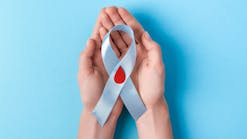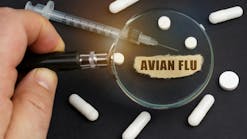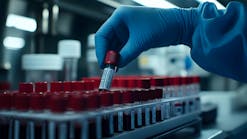Independence Day is a time for fireworks shows, family fun, ballgames, cookouts…and reading about advances in biomedical science that may have relevance for the clinical laboratory in the future. While traveling home for the Fourth of July weekend, waiting for a connection at a major airport, I read an article that was published in the local newspaper that day about an interesting research study. I thought I’d use this space to share with you what I read.
The article discussed a Duke University study, which had been published in the Journal of the American College of Cardiology. The study, “Aspirin exposure reveals novel genes associated with platelet function and cardiovascular events,” suggested that daily aspirin may not be significantly effective for 10% to 15% of the population. This is news, considering that some 60 million Americans take aspirin daily in an effort to stave off heart disease.
The writer quoted senior study author Geoffrey S. Ginzburg, MD, PhD, director of genomic medicine at Duke’s Institute for Genomic Sciences and Policy, that the variability of aspirin’s effectiveness in the population could already be inferred from the fact that “a substantial number of people who take aspirin for prevention come back in with heart attacks and strokes.” Dr. Ginzburg’s research team set up a controlled experiment and identified a biomarker that predicts response to aspirin therapy.
The Duke researchers enlisted three groups of participants—two comprised of healthy volunteers and one made up of patients with heart disease. The healthy volunteers were given a dosage of 325 mg of aspirin daily for up to a month; the heart disease patients had been prescribed a low dose of aspirin as part of their treatment. Blood was then analyzed for the impact of aspirin on RNA expression and platelet function.
The RNA microarray profiling after aspirin administration revealed a set of 60 co-expressed genes that the researchers call the “aspirin response signature,” which consistently correlated with an insufficient platelet response to aspirin therapy among the healthy subjects as well as the heart disease patients.
The researchers also examined the aspirin response signature in another group of patients who had undergone cardiac catheterizations. They found the signature was also effective in identifying patients who eventually suffered a heart attack or died.
Will the biological marker the team identified eventually lead to a readily available test based out of whole blood that predicts the effectiveness of aspirin in individual patients? Deepak Voora, MD, the study’s lead author, thinks that it could: “We have the possibility of developing a diagnostic test that could be run out of a commercial lab and come back to a physician to give an indication of a patient’s response.” The biomarker could be a valuable tool in predicting the degree of risk of a cardiovascular event that a patient faces even when he or she is taking aspirin, and it might be used by clinicians to adjust aspirin dosage or consider alternative drug therapy.
Certainly, we are living in a time when the evaluation of patients’ receptivity to treatment via the examination of genetic material is becoming increasingly common; it may be on the way to becoming routine. And I think it is significant that editors of major newspapers consider studies of this sort to be of enough general interest to be reported in the popular press. Personalized medicine marches on, and the public is aware of it.
An abstract of the JACC article can be found online. Please visit: http://www.jaccjournaloftheacc.com/article/S0735-1097(13)02547-3/abstract.






